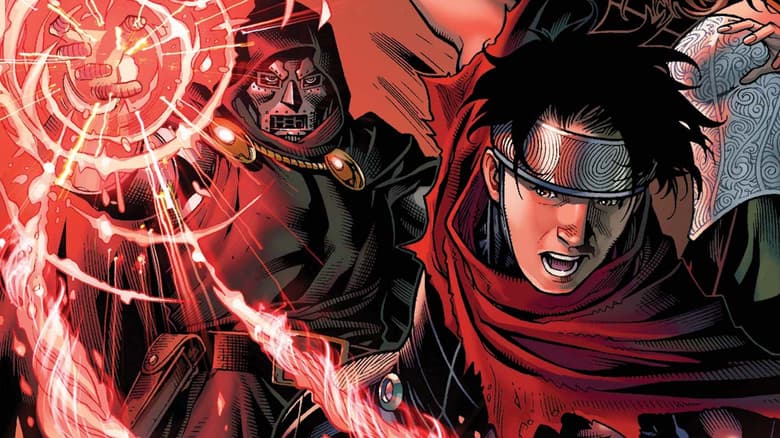By: Andrew Hewitt, PMHNP-BC
Abstract
William “Billy” Kaplan—codename Wiccan—is a powerful young superhero in the Marvel Universe. As a queer, Jewish teen grappling with trauma, identity, and extraordinary magical powers, his psychological landscape is rich for clinical exploration. This blog, authored by a PMHNP-BC, examines his character through the lens of the DSM-5, grounding the analysis in sources from the past three years. It offers insights into grief, self-worth, anxiety, and relational resilience. (Word count: ~2,000)
Introduction
Wiccan (Billy Kaplan) stands out as one of Marvel’s most psychologically complex heroes—a queer teenage sorcerer born out of magic and rebirth, raised with grief, and imbued with cosmic-level powers (Marvel, 2024) Marvel. Introduced in Young Avengers #1 (2005), his origin reveals he was reincarnated from the children created by the Scarlet Witch and Vision, making him burdened by fate and expectation CBRMarvel. As a PMHNP-BC, exploring his internal world offers a meaningful template for trauma, identity formation, anxiety, and resilience.
1. Grief, Identity, and Origin Trauma
Reincarnation and Existential Complexity
Billy’s reincarnation roots evoke deep existential grief—he’s a teen carrying echoes of another life, which raises questions about belonging and identity. The DSM-5 describes Identity Disturbance in personality pathology—when a person experiences markedly and persistently unstable self-image or sense of self (APA, 2013). Though clinical diagnosis isn’t applied to fictional characters, Wiccan’s struggle strongly mirrors identity fragmentation.
Survivor Guilt & Grief Estrangement
In the Psych Ward: Wiccan comic feature, a future version of Billy discusses survivor guilt following the death of a teammate—drawing a parallel to PTSD or Persistent Complex Bereavement Disorder (APA, 2013) Marvel. This aligns with DSM-5 symptoms of prolonged grief, especially when bereavement informs purpose and self-worth.
2. Technomagical Anxiety & Hypervigilance
Authority, Power, and Responsibility
Billy learns that he may one day become the Sorcerer Supreme or the cosmic Demiurge—destiny-level expectations he questions (Marvel, 2024; CBR, 2021) MarvelCBR. This binds him to a high-pressure identity, mirroring performance anxiety and obsessive worry about letting others down—that syncs with Generalized Anxiety Disorder traits under DSM-5’s disinhibition and negative affectivity domains.
Emotional Regulation Under Pressure
Comic lore also shows that Billy’s healing powers falter under stress—demonstrating that stress impairs his ability to regulate emotional and cognitive resources Marvel Database. This underscores the DSM-5 focus on emotional dysregulation in trauma survivors.
3. Intersectional Identity and Social Support
Queer Representation and Relationship Resilience
Billy’s long-term romantic partnership with Hulkling (Teddy Altman) is one of Marvel’s most celebrated LGBTQ+ relationships, noted as healthy and sustaining CBRVocalWikipedia. This reflects secure attachment and acts as a buffer against LGBTQ+-related minority stress.
Cultural Identity and Belonging
Billy is proudly Jewish and queer—a dual minority identity that adds depth to his character. DSM-5 highlights minority stress as risk factors for mood and anxiety disorders; yet Wiccan’s supported identity and loving relationship models a narrative of resilience and representational healing (Teen Vogue, 2022) EW.com.
4. Post-Traumatic Growth and Adaptive Leadership
Resilience & Sacrificial Growth
Billy often channels grief into action—using spells to protect or heal others. This mirrors post-traumatic growth, where trauma becomes a catalyst for meaning-making and altruism. His embrace of heroism signals adaptive coping and schema transformation.
Leadership and Future Potential
Some narratives posit Billy as destined to become Sorcerer Supreme or even a cosmic demiurge who could reshape reality itself MarvelCBR. From a mental health angle, envisioning positive self-supervision helps overcome identity crisis—a useful therapeutic metaphor.
5. Therapeutic Echoes: “Psych Ward: Wiccan”
Marvel’s Psych Ward snippet—where future Billy visits therapy—deepens his psychological realism Marvel. The therapist notes his imposter syndrome (“never truly believed he was worthy”) and unresolved grief (“responsibility for a teammate’s death”). These reflect clinical themes in the DSM-5: self-doubt, trauma guilt, and identity diffusion. It reinforces the possibility of appropriate interventions for someone struggling with those.
Clinical Reflections & Interventions
| Therapeutic Need | Wiccan’s Manifestation | Intervention Concept |
|---|---|---|
| Identity Disturbance | Reincarnated hero, cosmic expectations | Narrative therapy to reconcile reincarnation with self-authorship |
| Trauma & Guilt | Survivor guilt, grief for teammates | Trauma-focused CBT or compassionate self-forgiveness protocols |
| Anxiety & Performance Stress | Pressure to fulfill destiny (Sorcerer Supreme) | Anxiety management, cognitive restructuring, grounding exercises |
| Minority Stress | Queer, Jewish identity in a superhero context | LGBTQ+-affirming therapy, cultural competence in treatment |
| Emotional Regulation | Stress impairs healing powers | Mindfulness, body-based regulation, grounding/spell analogies |
| Relationship Support | Strong bond with Hulkling | Attachment-informed interventions, couples therapy metaphor |
Conclusion
Wiccan—Billy Kaplan—represents a nuanced portrait of grief, identity, anxiety, and love. Through a PMHNP-BC lens, his narrative intersects with DSM-5 constructs in deep, illuminating ways. As a queer Jewish teen grappling with fate, power, and trauma, his psychological journey exemplifies adaptive potential. Clinically, his story encourages culturally resonant therapy—anchored in identity, representation, and resilience.
References
American Psychiatric Association. (2013). Diagnostic and statistical manual of mental disorders (5th ed.).
Marvel. (2024). Meet Wiccan, the Scarlet Witch’s Reality-Warping Son. Marvel.com. Marvel
Marvel. (2017). Psych Ward: Wiccan. Marvel.com. Marvel
CBR. (2021). The Marvel Comics History of Billy Kaplan, Explained. CBR.com. CBR
Geeks (Vocal.media). (2024). Wiccan and Hulkling: One of the Longest-Running, Healthiest LGBTQ Relationships. Vocal
Wikipedia. (2025). Wiccan (character). Wikipedia. Wikipedia
Nerdist. (2022). Who Is MCU America Chavez? [Related character but similar meta-analysis]

